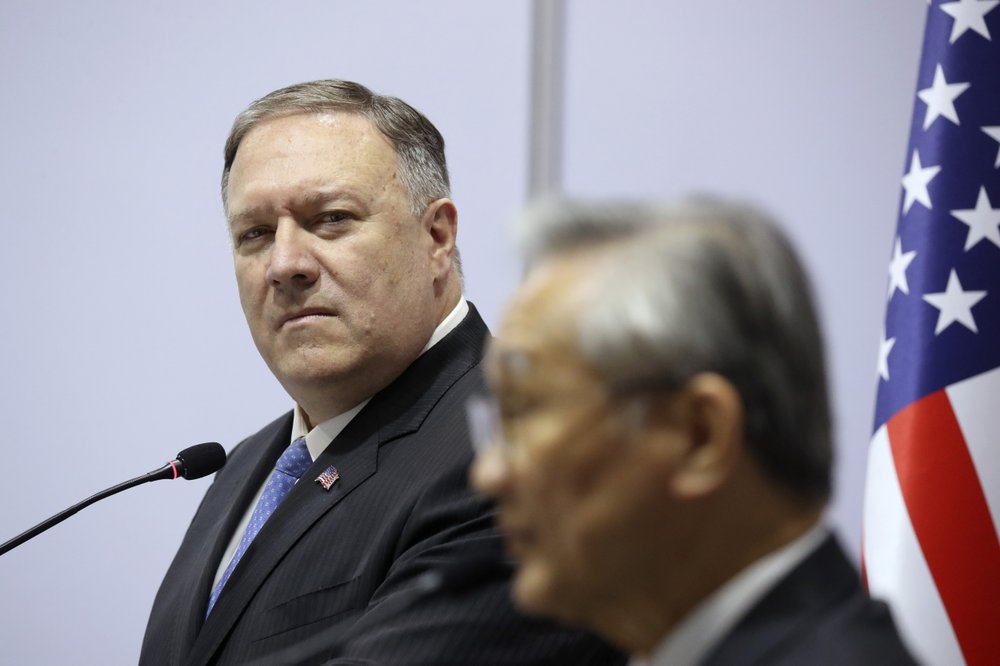U.S. Secretary of State Mike Pompeo said Thursday the Trump administration remains ready to resume talks with North Korea now, although he regretted that a meeting between the two sides is unlikely at an Asian security conference this week in Thailand.
Pompeo said he and the administration’s chief negotiator Stephen Biegun had hoped to meet with a senior North Korean official while in Bangkok for the annual Association of Southeast Asian Nations forum. No such meeting had been formally scheduled and the North’s foreign minister was not expected at the three-day event in the Thai capital, but Pompeo said it looked increasingly like those hopes would be dashed.
“We stand ready to continue our diplomatic conversation with the North Koreans,” Pompeo told reporters at a joint news conference with the Thai foreign minister. “I regret that it looks like I’m not going to have the opportunity to do that while I’m here in Bangkok, but we’re ready to go.”
The annual ASEAN security meeting has been used in the past as a venue for U.S.-North Korea talks and although the North had signaled that its top diplomat would not attend this year, Pompeo had held out hope for a change of heart.
Despite the apparent stand-up by the North, Pompeo said he believed a new round of working level talks led by Biegun and his North Korean counterpart could happen soon.
“I am optimistic that that will happen before too long,” he said. “We’re looking forward to a chance to reconnect with them in a formal way diplomatically.”
Biegun was present in Pompeo’s Thursday meeting with Chinese state councilor Wang Yi and the State Department said he was in Bangkok for North Korea-related meetings but did not elaborate.
Pompeo, who has a full day of meetings in Bangkok on Friday before leaving Saturday for Australia, made his comments shortly after the North announced progress in missile tests conducted over the past week.
North Korea said Thursday that leader Kim Jong Un had supervised the first test firing of a new multiple rocket launcher system that could potentially enhance its ability to strike targets in South Korea and U.S. military bases there. A report by North Korea’s official Korean Central News Agency differed from the assessment by South Korea’s military, which had concluded Wednesday’s launches were of two short-range ballistic missiles.
The launches from the eastern coastal town of Wonsan were North Korea’s second weapons test in less than a week and were seen as a move to keep up pressure on Washington and Seoul amid a stalemate in nuclear negotiations. Pyongyang has also expressed anger over planned U.S.-South Korea military drills.
KCNA said Kim expressed satisfaction over the test firing and said the newly developed rocket system would soon serve a “main role” in his military’s land combat operations and create an “inescapable distress to the forces becoming a fat target of the weapon.”
The launches on Wednesday came hours after a senior U.S. official said President Donald Trump sent Kim mementos from his brief visit to an inter-Korean border town late last month. The official said a top staffer from the National Security Council hand-delivered photographs from the leaders’ June meeting at the Korean Demilitarized Zone to a North Korean official last week.
The DMZ meeting was the third summit between Trump and Kim. At their second meeting, in Vietnam in February, Trump rejected Kim’s demand for widespread sanctions relief in return for dismantling the North’s main nuclear complex, a partial disarmament step.
(AP)











